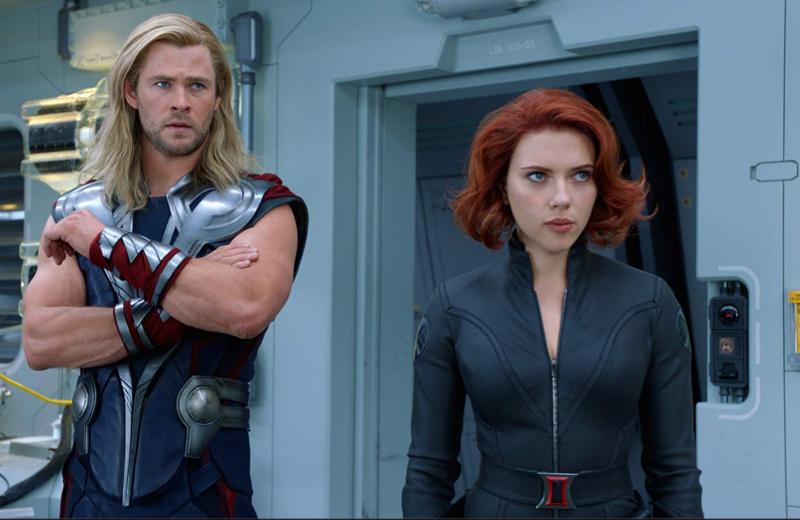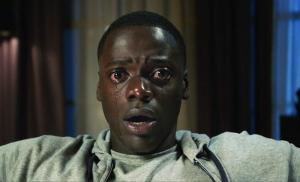Most influential films of the decade
As we close the door on another decade of the 2000s, I thought it would be interesting to take a look back at the various films that defined this 10-year span. It was a milestone period for many reasons.
It was a decade where we were introduced to – and quickly eulogized – names like Qwickster (Netflix’s original label for its streaming service) and MoviePass, the too-good-to-be-true credit card for theater-going. It was when Netflix, Amazon, YouTube and Hulu not only got in on the streaming game, but became producers of their own original content, some of which earned major award nominations and wins. And it was a decade in which domestic box office was only one part of the puzzle for major films, as China increasingly gained on and then overtook the U.S. as the country with the most theaters. Other notable markers include:
- The start of Disney’s live-action remake machine (Alice in Wonderland)
- The end of Harry Potter films, the Avengers and Star Wars
- A34 becoming an independent film powerhouse (“Ex Machina,” “First Reformed,” “The Witch,” “Eighth Grade,” “Moonlight”
- Sony being hacked after North Korean comedy “The Interview” was announced
- The #OscarsSoWhite movement of 2015
- The rise and fall of other cinematic “universes”:( RIP Universal’s “Dark Universe” thanks to “The Mummy”)
- “Black Panther.” That is all.
And, of course, it was the decade in which Disney became the sole owner of any and all franchises that you once held dear. Hope you enjoyed them while they lasted.
But there were films released within this time frame that had an impact in various ways and helped shape the 2010s. There were countless imitators in their wake, all hoping to recapture their magic, but here are some of the true cinematic pioneers of the decade:
The Avengers (2012): Like it or lump it, it’s a Marvel Cinematic Universe and we’re just living in it. Though it got its “official” start in 2008 with “Iron Man,” the separate films were first linked in 2012 with Joss Whedon’s “The Avengers.” There were 17 more MCU films released within the decade, but “Avengers” laid the foundation to tie them together.
Blackfish (2013): Films have the power to change hearts and minds, but few had the impact necessary to help take down a behemoth (Sea World admitted to a $15.9 million loss as a result of the documentary), sever business relationships (performers and partners alike dropped them) and inspire laws (the Orca Welfare and Safety Act of 2014, among others) the way this tiny documentary on the abusive practice of keeping whales captive did.
Get Out (2017): Going from a popular sketch-comedy show to being one of the most preeminent names in smart, social horror in a just a couple years was no small feat, but Jordan Peele made it look easy with his box-office breakout “Get Out” (and his subsequent “Us”). Brilliant and biting, it demonstrated what horror does best by holding up a mirror to society, and sadly foreshadowed just how little race relations have progressed in the U.S.
Boyhood (2014): At the start of the 2000s, director Richard Linklater started laying the groundwork for a years-long tale of a family’s fractured life through the eyes of a protagonist who literally aged right before our eyes. Both intimate and sprawling, “Boyhood” was a magical, heartbreaking journey through life and all its messy little details, while also demonstrating just how fast those years slip by.
Mad Max: Fury Road (2015): At the ripe age of 72, director George Miller roared like a lion with a furious return to a franchise he founded in 1979. Ablaze with grit, gears, guts and stunts, that was not only one of the most entertaining films of the decade, but a flag-planting ode to the empowerment of its female leads.
Mission: Impossible – Fallout (2018): Faster, more furious and focused than any other espionage thriller in this surprisingly resilient franchise, “Fallout” gave Ethan Hunt and his fellow spies some of its most death-taunting stunts, tightly choreographed fights, and emotionally urgent missions. As insane as the action gets, Tom Cruise and company manage to make it feel as though it all possibly “could” take place.
Inception (2010): Chistpher Nolan has always pushed boundaries, some more successfully than others. But placing a heist film in the world of dreams (and then burrowing further into the layers of dreams themselves) was no small feat. A previous take on a dive into the subconscious was the equally beautiful “Paprika” in 2006, but that was in easier-to-digest animated form. And while “Inception” was not the first, it was by far the strongest and one of the most culturally influential.
Hereditary (2018): This quiet, unassuming yet visually and narratively devastating horror film slid under the skin with its nightmarish imagery and a powerhouse performance from its lead Toni Collette. Trading emotional trauma for jump scares, Ari Aster became one of the most striking directors of the decade with this classic-to-be.
Holy Motors (2012): You can have your “La La Land.” When it comes to the magic of film, I will go to this lyrical madness as an example of the power of a movie’s wizardry. Its ability to plunge its audience into a breathtaking new world feels like what it might have been like to ride shotgun with comedic firecracker Andy Kauffman back in the day. Just as our lead Oscar (played with manic glee by Denis Lavant) speeds through Paris to portray different characters, we are transported to every genre of film imaginable, until this film creates one all its own.
Annihilation (2018): With scenes that are alternately beautiful and horrifying, director Alex Garland crafts a visionary science-fiction film that contemplates some of life’s heaviest decisions and looks inward as it also gazes up to the stars.
Star Wars: The Last Jedi (2017): Bring on the hate, but as a lifelong “Star Wars” nerd, this was the one entry in the decades-long franchise that I thought felt bold and new. Tossing aside all the remixed familiarity of J.J. Abrams’ “The Force Awakens,” “Jedi” had the nerve to go off the grid and give fans something fresh and ambitious. Composer John Williams even seemed to up his game, giving “Jedi” his most memorable addition to his legacy of scores.
Drive (2011): The best Michael Mann film the director never made, “Drive” exudes an abundance of cool in every scene. From the near-silent performance of Ryan Gosling (as the stuntman moonlighting as a getaway driver) to the previously unearthed villainy of Albert Brooks, “Drive” makes it all look so damn sexy, until it skids to a halt to jar you with scenes of shockingly intimate, unexpected violence, providing viewers with one hell of a ride.
Parasite (2019): I realize this film may still have that “new-car smell,” as it was released only a few months ago, but it seems safe to bet it’ll age well. Defying genres, Bong Joon-ho takes class struggle to the most unexpected locations, narratively speaking. With more twists than a tantric yoga handbook, “Parasite” rarely lets you in on where it will go next, but you will always enjoy the results.
Birdman or (The Unexpected Virtue of Ignorance) (2014): For some, this seemingly one-continuous-shot drama may come across as overtly splashy, but as the adage goes, “It ain’t trickin’ if you got it.” Michael Keaton thunders back on the screen as a former cinematic superhero yearning to reclaim his fame on Broadway. It’s as sharply satirical as it is heartbreaking, or heartwarming, depending on your interpretation of the film’s conclusion.
Once Upon A Time...In Hollywood (2019): Once again, it may feel that this one is too new to include on the best of the decade, but of Quentin Tarantino’s eight films (three of which were released in this decade), this one felt like it was his first truly authentic voice. Not that the others were copies, but more like remixes or mashups of genres he admired growing up. It’s a fictional take on what Hollywood was, and what might have been, and it was made by someone who loves every aspect of the industry.
When They See Us (2019): Technically a four-part Nexflix miniseries, but it makes for one of the most powerful viewing experiences in quite some time. Meticulously covering the lives of the Exonerated Five from the Central Park jogger case and how they were systematically dragged through the system despite their innocence, this film is filled with moments that are as emotionally devastating as anything on the big screen.





















































